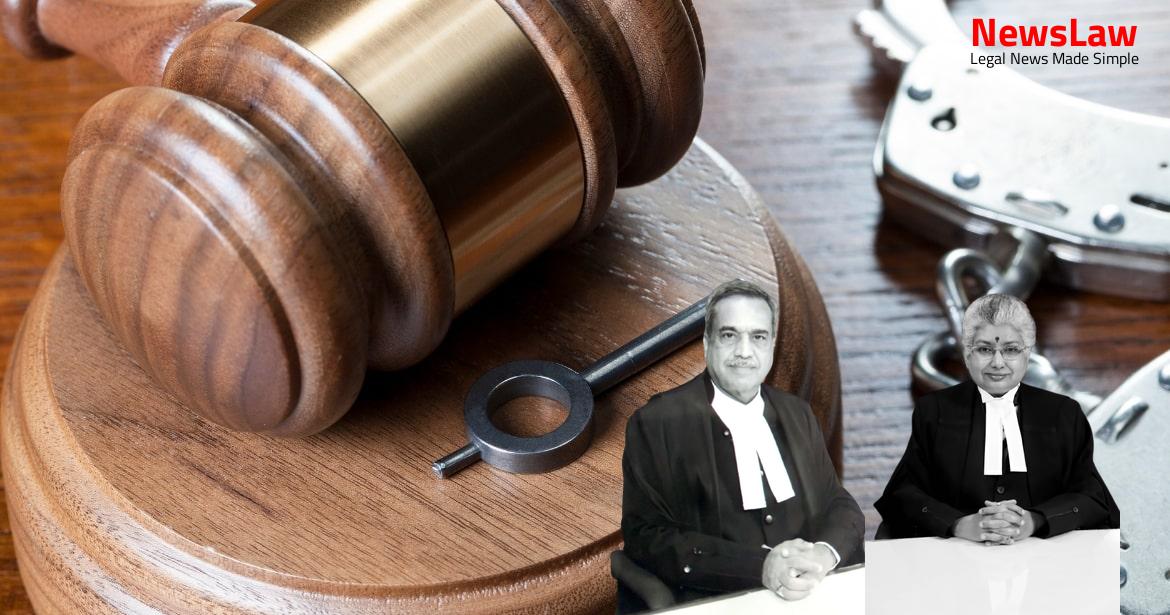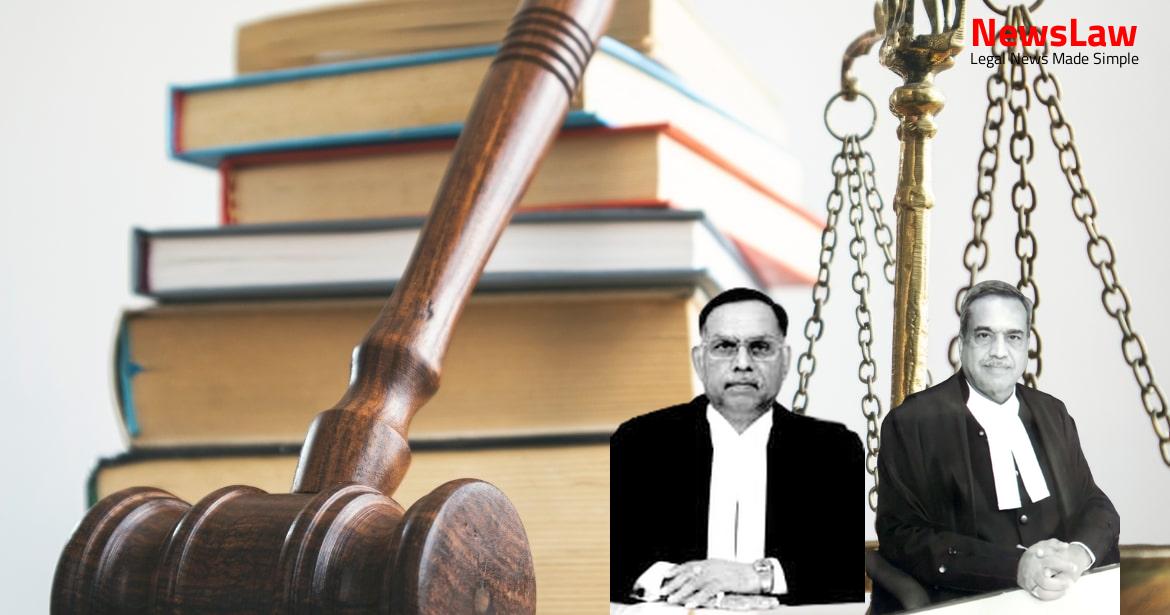Delve into the intricate legal analysis carried out by the court in ensuring compliance in contempt proceedings. The focus is on the necessity of orders such as passport deposit to guarantee the presence of parties involved. This summary highlights the significance of court directives in maintaining order and facilitating legal proceedings.
Facts
- Respondent No.1 filed an affidavit claiming he is living in Delhi and did not mention his Singapore residence details.
- An additional Working Capital Limit was granted to a company in October 2008 by the Bank of India.
- Several orders were passed, with relevant ones confirming injunction orders and directing maintenance of status-quo.
- Loan facility was availed and equitable mortgage created even before the injunction order of 2008.
- Defendants availed financial facilities by mortgaging the suit property despite the injunction order.
- Contempt petition filed against respondent No.1 and his father for non-compliance with undertakings.
- Various orders passed due to non-compliance with undertakings, including submission of passports and security.
- Instances of respondent No.1 not complying with undertakings and providing false information about his address.
- Legal proceedings and actions taken regarding encumbrances and property sales.
- Division Bench decision to return the passport to respondent No.1.
- Appellant alleged concealment of Family Settlement in a civil suit.
- Actions taken related to the non-clearance of charges on the suit property and offering of other properties as security.
- The appellant filed a civil suit (CS (OS) No.1134 of 2008) seeking declaration, permanent injunction, and possession of the suit property in Friends Colony, New Delhi.
- Defendants Sarabjit Prakash and respondent No.1 (defendant No.4) failed to discharge dues of Bank of India as committed in court.
- Appellant filed I.A No.41 of 2013 under Order XXXIX Rule 2A due to non-compliance by the defendants.
- Court found balance of convenience in favor of the appellant and granted an ex-parte stay order.
- Appellant filed a contempt application (I.A. No.19801 of 2011) for breach of injunction order.
- High Court directed that a certain amount of money should only be used for the medical expenses of Sarabjit Prakash.
Also Read: Jurisdiction of Family Court in Cases under Muslim Women’s Protection Act
Arguments
- Learned counsel for the appellant argued that respondent No.1 was granted additional working capital of Rs.5 crores in October 2008 against Stocks and Book Debts, not a loan against property.
- Respondent No.1 claims legal ownership of the suit property through a registered will in his favor by his father and a sale deed executed by his wife.
- The dispute over the title of the property can only be determined in the ongoing suit with evidence.
- In July 2013, undertakings were given to clear dues and encumbrances on the property within four months, but they were not fulfilled.
- The first respondent failed to keep up with the undertaking, as evidenced by discrepancies in his affidavit regarding his residence in Delhi versus Singapore.
- The appellant argued that the order to deposit the passport was necessary to ensure respondent No.1’s presence in India, as he was suspected of leaving for Singapore.
- Despite multiple undertakings, respondent No.1 did not clear the charges on the property within the agreed timeframe, leading to the order to surrender his passport for compliance.
- The appellant believed that in contempt proceedings, the Court has the power to enforce compliance, including directing the deposit of the passport, and the Division Bench erred in overturning the Single Judge’s order.
- Respondent No.1 and his father made efforts to clear bank dues but faced unavoidable circumstances.
- Equitable market value of the property in question was determined prior to the alleged ex-parte stay order.
- Bank of India was not made a party to the suit, restricting DRT’s jurisdiction for recovery of dues.
- Order of status quo was already in place in a related suit, rendering some directions by the Single Judge unnecessary.
- Coercive directions by the Single Judge for clearing dues were considered unwarranted by the Division Bench.
Also Read: Clarification on Additional Tax under Section 143(1-A)
Analysis
- The presence of respondent No.1 is important for further progress of the trial
- The order to deposit respondent No.1’s passport before the Court is confirmed
- The learned Single Judge did not exceed jurisdiction by ordering the surrender of the passport to ensure the presence of parties in contempt proceedings.
- Courts have the power to pass orders, including passport surrender, to ensure presence of parties in contempt proceedings.
- In the case of David Jude vs Hannah Grace Jude and Another, the Supreme Court directed the cancellation of a passport to secure the presence of a contemnor and ensure appearance before the Court.
- The focus of the court has been on interim orders and the contempt petition due to the suit being of the year 2008.
- It is clarified that the learned Single Judge did not order impounding of respondent No.1’s passport but directed him to deposit it in the Court.
- The purpose of directing respondent No.1 to surrender his passport was to ensure his presence as he was filing repeated undertakings but not complying with them.
- The Division Bench was deemed incorrect in setting aside the order of the learned Single Judge regarding the passport deposit, and their judgment is not sustainable.
Also Read: Court’s Analysis on Patent Illegality in Arbitral Awards
Decision
- Trial in civil suit CS (OS) No.1134 of 2008 is said to be pending for cross-examination of the defendants’ witnesses.
- Respondent No.1 needs to be available when the suit is disposed and in case of an adverse decree.
- Respondent No.1 is directed to deposit his passport before the Court to ensure his presence.
- The trial needs to progress expeditiously and ideally conclude within nine months.
- The impugned order of the Division Bench in FAO (OS) No.210 of 2017 is set aside, and the appeal is allowed.
- Contempt petition disposed of by the learned Single Judge on 04.12.2018 due to the order of the Division Bench.
Case Title: SHYAM SAHNI Vs. ARJUN PRAKASH (2020 INSC 319)
Case Number: C.A. No.-002210-002210 / 2020



